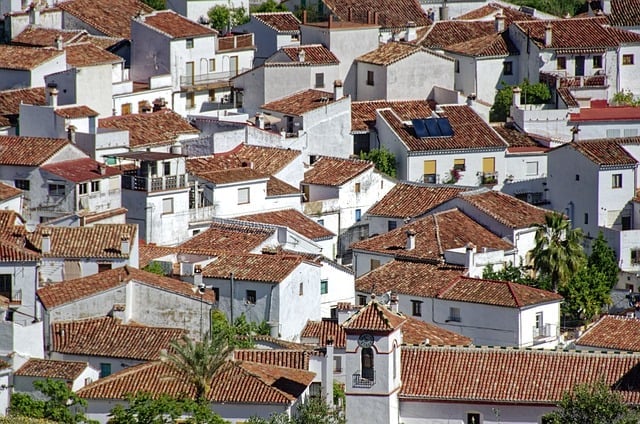Last year was a rather unpredictable year, to say the least, with inflation driving up the prices of seemingly everything from sausages to suncream. Many people in Spain and indeed across the continent were forced to tighten their belts in a way many haven’t had to since the aftermath of the financial crisis in 2008.
This was certainly true in the housing market, where both the purchase and rental markets have felt the brunt of the ongoing economic volatility and have seen prices rise significantly in the last couple of years.
With interest rate rises making mortgages more expensive and a shortfall in rental properties failing to keep up with demand, many might be wondering what 2023 will bring for the Spanish property market and whether it’s best to buy or rent moving forward.
Though inflation does thankfully seem to be levelling off somewhat, in 2023 the Spanish market is still expected to be affected by a combination of high underlying inflationary pressures, rising interest rates, more expensive mortgages, and a shortage of new build homes, putting the rental market under pressure.
READ ALSO: What the Euribor rise means for property buyers and owners in Spain
Buying
In Spain in 2022, property sales grew. In fact, during 2021 and 2022, both the number of sales and prices rose at rates not seen since before the 2007 housing market boom.
According to property consultancy company Atlas Real Estate Analytics, it is estimated that 2022 saw around 665,000 transactions, two percent more than in 2021.
Prices reflected this steady growth in demand. According to data from Inmobiliarias Apprais, the price of housing grew by 8.8 percent in 2022.
In 2023, however, prices may well flatline or even drop slightly, although the European Central Bank (ECB) has warned that house prices are due to drop by as much as nine percent across Europe over the next two years.
With inflation affecting economies across the Eurozone, in May of 2022, the European Central Bank took the radical monetary policy move of raising interest rates and the Euribor (the rate tied to mortgages in Spain), has risen steeply since then.
This will have an effect on housing demand and prices in Spain in 2023, but Spanish property experts seem to think the fall in demand and prices won’t be anywhere near as severe as in other European countries.
Though the overall number of property transactions (sales and purchases) could be set to fall by around 15 percent in 2023, the drop in house prices is forecast to be only 0.9 percent, according to Atlas Real Estate.
So although Spain might not be the market where potential buyers are looking to bag a cut-price bargain in 2023, it’s still good to know where prices increased the most in 2022. Zaragoza came in first place where prices grew by 10.9 percent, then San Sebastián (10.8 percent), followed Cádiz (9.3 percent), Madrid (9.2 percent) and Las Palmas de Gran Canaria (8.9 percent).
Málaga, Valencia and Bilbao all saw annual rises of over 8 percent, and in Barcelona, an incredibly saturated market, the rise was 4.7 percent.
The overall, continent-wide cooling of house prices, experts say, will be a more stabilising force in the Spanish market and less likely to lead to major price falls.
Luis del Corral, CEO of Foro Consultores Inmobiliarios, foresees a stable market in 2023 with neither price slumps nor significant rises, although he urges buyers not to go for new builds. “The supply of new housing is being very restricted and in the face of this scarce supply, price tension will remain. This indicates that there is little new housing and [that] it is expensive. Those who need to buy a home will have to go second-hand,” he said.
READ ALSO: Will Spain’s Canary Islands limit sale of properties to foreigners?
READ ALSO: What will happen with property prices in Spain in 2023?
Renting
So, what about renting?
Unfortunately, the Spanish rental market has been far from immune from the global economic turmoil, with prices rising and demand surging, but supply trailing behind, and fears that frustrated buyers will be pushed into the rental market to further drive up prices.
In fact, there were 45 percent fewer shared properties on the market in 2022 than in 2021.
READ ALSO: Stricter requirements and screenings: Why it’s getting harder to rent in Spain
Though renting is an alternative for those who cannot buy a house or have been put off by the rising mortgage rates, the surge in rental prices means that even renting has become unaffordable for some in Spain.
In 2022 overall rental prices largely mirrored the increase in purchase prices, growing by an average of 8.4 percent.
However, like when potentially buying, knowing where prices have increased the most in the last year is worth keeping in mind. Unsurprisingly, the biggest increases in annual rental prices were seen in provincial capitals and major cities.
In Barcelona, for example, rents jumped by over a quarter (25.7 percent), followed by Alicante (23.4 percent), Valencia (20.9 percent), Málaga (20.7 percent) and Girona (19.2 percent).
Though the Spanish government has limited rental increases to 2 percent, it won’t affect new renters unfortunately.
READ ALSO: Spain to keep limiting rent increases throughout 2023
María Matos, Spokesperson for real estate giant Fotocasa said in the Spanish press recently, the rise in mortgage rates may put off some potential buyers and push them into the already oversaturated rental market: something “which will put even more pressure on the scarce supply and prices will continue to rise.”
2023 outlook
According to Fotocasa, “both the purchase and renting of housing in Spain will continue to be one of the great problems of 2023, especially for young people. The new year will ultimately bring price containment, without large fluctuations and a worrying lack of supply”.
The Spanish property market, both in terms of purchases and rentals, is suffering from a deeply embedded imbalance between supply and demand. Though the government has limited rental increases for some tenants, this cap won’t affect new contracts and is of little use to people thinking of moving to Spain in 2023.
It’s true that the Spanish market is expected to cool off after a couple of years of price increases, but it isn’t expected to see the drastic price plummets predicted in other European countries either. This means that Spain might not be the place for bargains in 2023, and the rising interest rates on mortgages might put many off taking the plunge.
Ultimately, deciding on whether to buy or rent in Spain right now seems a largely individual decision. It depends on your personal financial circumstances, where exactly in the country you’re looking, and whether or not you can afford the rising mortgage rates.



 Please whitelist us to continue reading.
Please whitelist us to continue reading.
Member comments